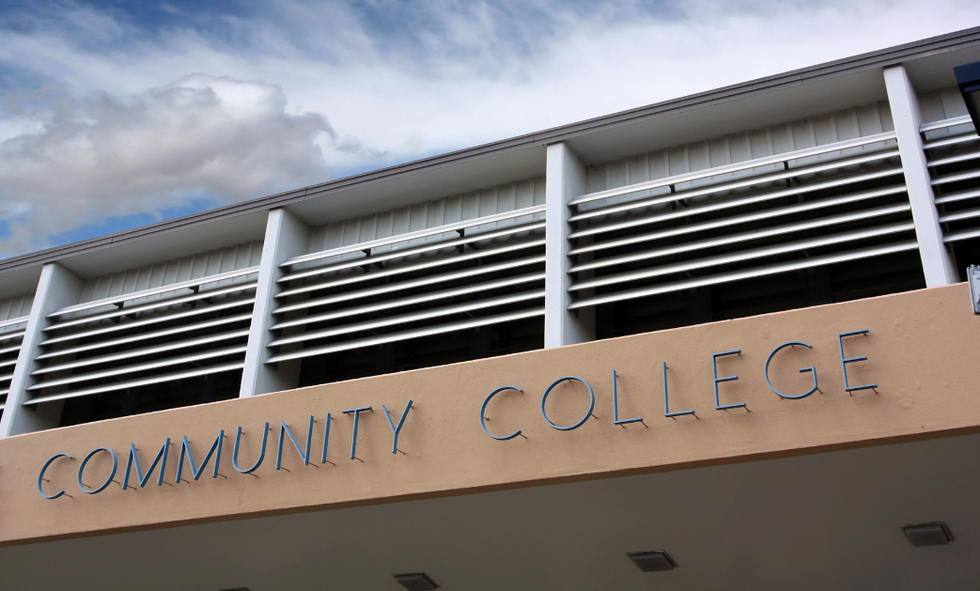With so many requirements and not enough advisement to point students in the right direction, it's becoming more and more difficult for undergraduate students to complete their degree programs in four years. Whether you're a traditional student, one who's changed their major multiple times, or someone who has decided to come back to earn their degree, we all face the four year panic. Every college comes with their own list of general education requirements that are supposed to enrich your education, but often times just serve as hassles and time burdens that we attempt to cram into our schedule and, resultantly, don’t get much out of. Well, although it is not publicized, there are several ways to get out of taking these classes during the traditional semester, and even ways to get out of taking these classes entirely. Here are some tips and tricks to get you to graduate on time, get ahead on your education or just ease your semester load.
1) CLEP Exams
The CLEP Exam, or the College Level Exam Program, is arguably the most under publicized, yet easiest way to earn credits quickly. CLEP Exams are the most widely accepted college testing program, being accepted at 2900 institutions, that allows students to prove knowledge on a topic of their choice and earn college credit for it.
Created by College Board, the corporation behind both the SAT and AP Exams, CLEP offers 33 exams in subjects ranging from College Mathematics to Analyzing and Interpreting Literature. This program offers 6 general exams, which must be taken before you earn fifteen credits, and 27 subject exams which can be taken at any time. Not only are these exams much less time consuming than a traditional course, they much more cost efficient. Running at only 80$ an exam(plus roughly a 20$ sitting fee at your test site), these exams make it possible to earn 3-6 credits in 90 minutes while saving thousands of dollars and opening up time in your schedule for classes that are important to you.
Now, you may be thinking that this sounds too good to be true and that these tests must be incredibly difficult to pass, but this is simply not the case. In fact, most institutions grant credit for scores 50 and above(50 being equivalent to an SAT 500). Not only this, but you can take practice tests for any of these exams on the CLEP website for free and gain perspective on your capability to pass these incredibly comprehensive exams.
Lastly, CLEP Exams are often administered both on your college campus and at your local community college. Earning credits can be as easy as confirming credit transfer with your institution's registrar's office, purchasing an exam, scheduling an appointment and simply walking into your library and taking it. Yes - it's possible to earn 3-6 applicable college credits in an hour(for content that you already know!!)- and you should pursue it! There is no limit to how many CLEP test you can take, so the integration of these exams can excel your education beyond what you might expect, and you could end up in a graduation gown much sooner than you thought.
2) Summer/Winter Courses Through Your Institution
Many institutions will offer some of their more popular classes over winter and summer break. Whether it's a health class or your science requirement, it's a really good idea to get some of your non-major classes(or even some of your major classes, if they're offered!) out of the way during these breaks because it allows you the opportunity to focus intensely on one or two subjects rather than spreading yourself thin over many during the semester. This ability to focus on one or two subjects often results in higher grades than students who take these courses during the traditional semester, plus you'll have less stress during the semester and an opportunity to get ahead by taking more required classes or to lighten up your course load. The best part - many of these courses are offered online, so you could spend a few hours a week on these courses when you don't have any other commitments and excel ahead!
3) Summer/Winter Courses Through Another Institution
Going off of topic two, it's possible to take courses at your local community college or other institutions closer to your home over break and earn credits! This can be a great option to save money, take classes that your institution might not offer over breaks, and ultimately be able to stay at home. The best part about these courses is that often transfer credits will not factor into your GPA, so if there's a course that you're worried might bring you down, this could be a really good option to get that class out of the way with your GPA in tact!
4) Taking Extra Classes During The Semester
Did you know that many universities charge the same tuition for students taking between 12 and 18 credits? Yes- It is possible for you to take 2 extra classes without any additional charge! Although this is the most strenuous option of the four I've listed, it could be a good option if the only classes that you have remaining are only offered during your traditional fall and spring semesters. Although I would never recommend taking a course load that will overwhelm you, if you can pair your more difficult classes with easier, less time consuming ones, it is very possible to succeed while taking 18 credits a semester.
Ultimately, each of these four tactics(or a combination of them!) have aided me in reaching my educational goals in an efficient manner and can do the same for you. Being an informed student can help you reach graduation sooner, and propel you into your future career quicker!
Study on, scholars!

























